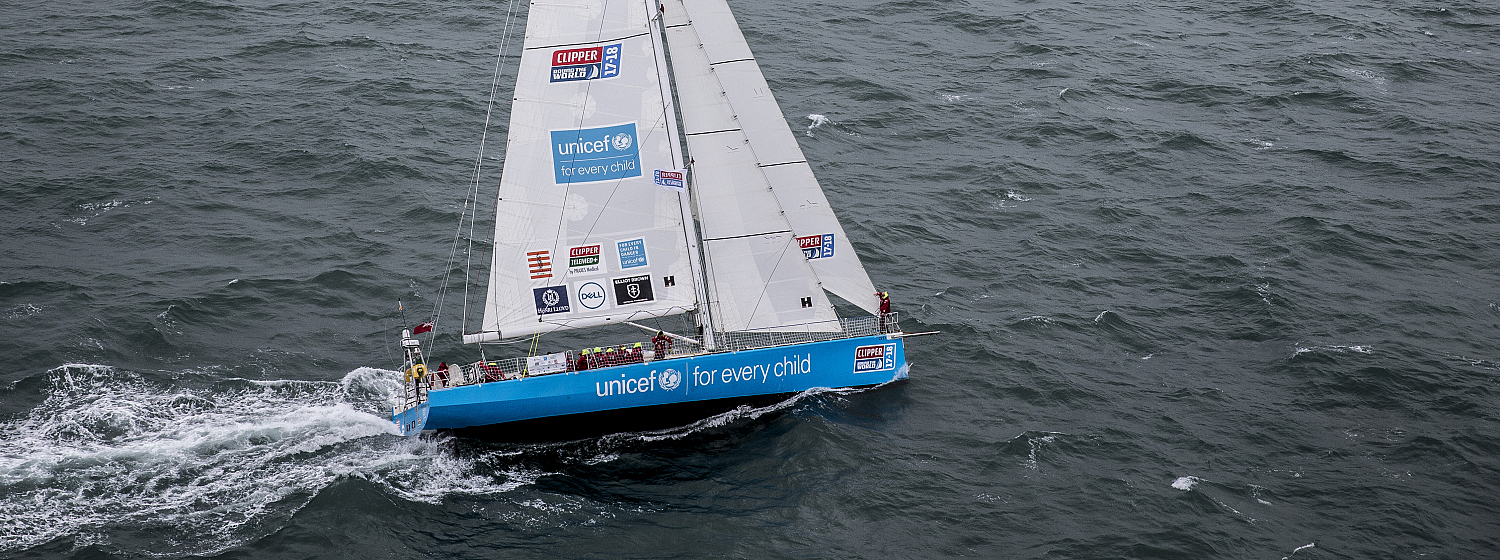Race 2 - Day 14
Crew Diary - Race 2 Day 14: Punta del Este to Cape Town
18 October
Back to Reports
View Team Page
Well. As we are approaching Cape Town, I thought it was time for another technical briefing particularly relevant to Unicef in its passage from Uruguay.
Now you may associate the words "Hove to" with ".... and Brighton Town 2 - a surprise result in the South Coast derby wouldn't you say Ron"*
* For our international readership Hove and Brighton are neighbouring towns on England's South Coast. Hove is very much more sedate and restrained than its more rakish neighbour. They both play football. Football commentators in England are traditionally called Ron.
Heaving to or being hove to on a boat has nothing to do with this. Except it does result in the boat being more sedate and restrained than hitherto. The sails in front of the mast and those behind want to push the boat in opposite directions relative to the wind. You use this together with the keel and the rudder to squeeze the boat forward when going into the wind. However by confusing the sails and putting them on opposite sides of the boat but facing the wind with the rudder hard over, you can totally depower them leaving your boat stationary. It feels like magic especially as you can do this in really rough weather. One moment you are on your ears hanging on for dear life, the next you are babbling along, being tossed by the waves of course but more or less calm and flat. Just like Hove.
In most of my sailing life acquiring this desirable state is a precursor to finding the corkscrew and enjoying lunch in Weymouth Bay without danger of spillage. Heaving to on a racing yacht does however mean you stop racing and you will only do that for serious reasons like effecting major repairs - which is something UNICEF had to do twice recently to reconstruct damaged rigging and safeguard our mast. So there we were for a couple of days watching our leader figure out how to solve a series of problems and our mast climbing heroic crew fellows improvising tools and techniques and being winched 90 foot from the deck to put them into practice. All the while we did not move but the big South Atlantic waves gave us the illusion of progress.
In the end there was a concerted crew effort to rescue one of our sails and the rigging to which it had become inextricably attached from disappearing not just into the sea but under the boat. And there was nothing restrained or sedate about the effort which went into that - or our sense of achievement when we won, the repairs continued and our boat was effectively re-rigged.
All in the centre of a big rough ocean and all because of being hove to.
Alison Ryan

